The problem with plastic pollution
Discover the effects of this life-threatening litter – and find out what you can do to help!
Did you know that every year 8 million tonnes of plastic end up in our planet’s beautiful blue oceans? And that’s seriously bad news for our friends beneath the waves…
Over 700 species of marine animals have been reported to have eaten or been entangled in plastic – and scientists think that the amount of plastic in the ocean may triple by 2050! But here’s the good news – by understanding the issue and taking action, you can help change the future and make our oceans a clean, safe place for our wonderful wildlife!
What’s the problem with plastic?
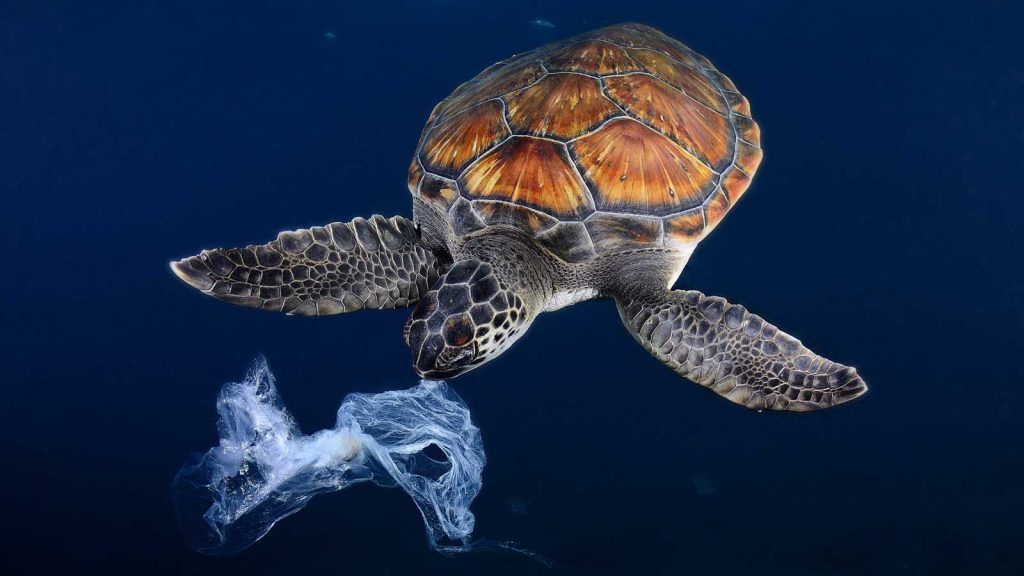
Plastic is an amazing man-made material used to make all kinds of important things. Bike helmets, car airbags and many medical supplies made with plastic save lives, and plastic water bottles can bring clean drinking water to people who don’t have it.
The problem is that most of us use more plastic than we need to, and half of the plastic we produce is designed to be used just once and chucked away. This so-called ‘single-use plastic‘ is used to make all kinds of items, such as shopping bags, straws, food wrappers and various packaging . And because plastic takes over 400 years to decompose (break down), it stays in the natural world, causing damage, for a very long time.
How does plastic waste end up in the sea?
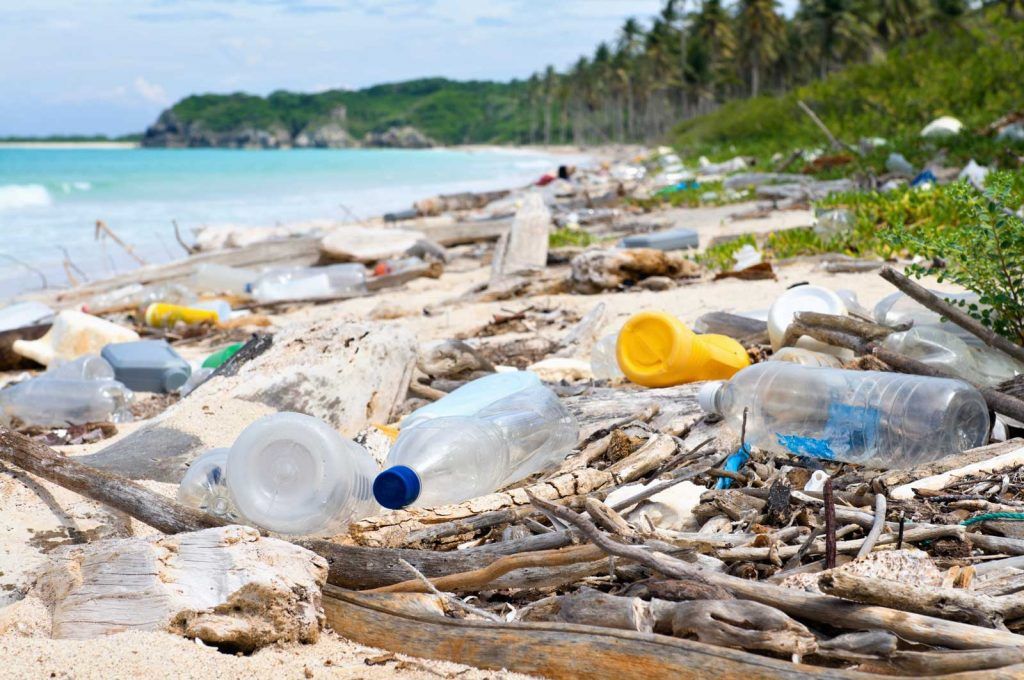
Scientists think that a whopping 8.8 million tonnes of plastic end up in the ocean every year. That’s the same as stacking five plastic shopping bags of rubbish on top of each other on every metre of coastline in the world! But how does it all get there?
One way is through ‘ocean dumping‘, when people illegally tip large amounts of waste directly into the sea. But not all plastic in the ocean is dumped there on purpose. In fact, around 80% plastic in the sea comes from the land….
Much of it is blown into rivers, streams and sewers from overflowing rubbish bins or landfill sites, and from streets and parks where people litter. Another way is through our drains. Lots of our clothes contain tiny plastic fibres, called microfibres, which enter our water ways from washing machines when people do their laundry. And believe it or not, toiletries such as toothpaste and face wash can contain minuscule bits of plastic, too! These “microbeads” get flushed down the drain and, eventually, into the sea ocean. Thankfully, the UK government has banned toiletries containing microbeads, but lots of other countries still use them.
Why is plastic waste dangerous?
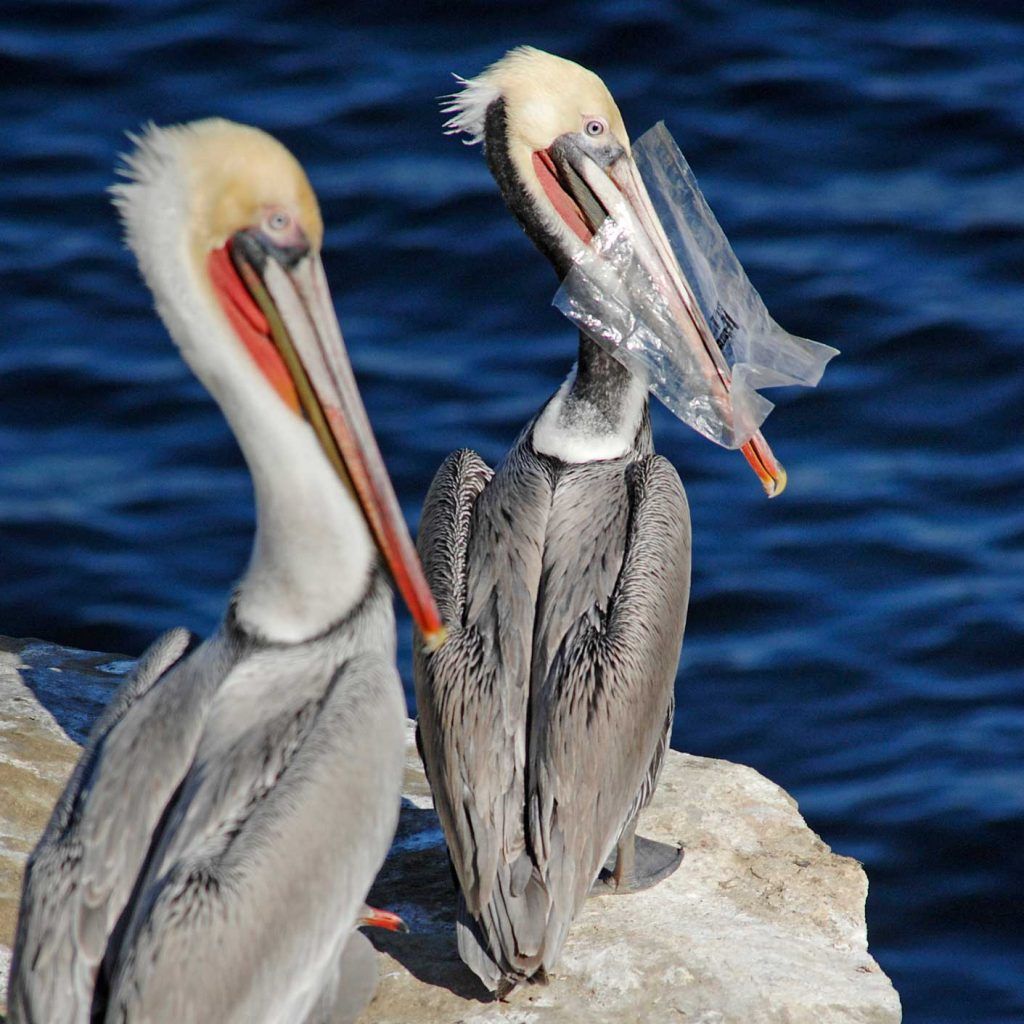
Animals and birds can get trapped, tangled and even strangled by all kinds of plastic waste, such as discarded fishing nets and six-pack rings from drinks cans. They also mistake small bits of plastic, such as bottle tops and wrappers, for food and gobble them up – leaving no room in their swollen tummies for real food. And the problem doesn’t end there…
When plastic breaks down in the ocean, it doesn’t break down completely – it just gets smaller and ends up being swallowed by fish and other marine animals and birds. The tiny particles of plastic absorb toxic industrial chemicals which, when eaten by fish, are absorbed into their tissues and are eventually eaten by humans.
What can we do about plastic pollution?
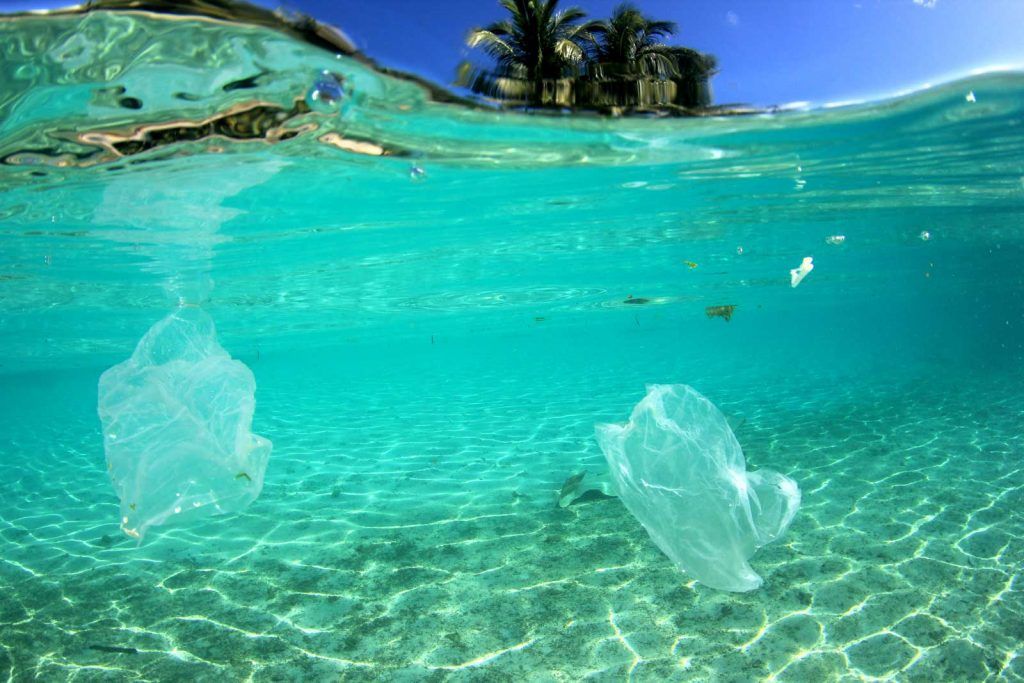
By working together, our choices can help clean up the ocean – and make it a safe place for our amazing marine life!
Look at how much single-use plastic your family uses by filling out a plastic journal for a week – then talk about what you can do to use less! Be sure to drink from reusable water bottles, use multi-use shopping bags and ask your parents to choose loose fruit and veg, rather than groceries wrapped in layers of plastic. And of course, recycle all the plastic that you can!
You can also help keep our seasides clean by going along to an organised beach cleanup. It’s fun, and we promise you’ll feel really proud when you see what a difference you’ve made!
Discover more ways that you can help clean up the natural world with our 10 tips to reduce plastic pollution!
Did you enjoy learning about the problem of plastic pollution? What have you done to help reduce plastic? Leave a comment below and let us know!
Text by Allyson Shaw, NG Staff
Photo credits:
Sea turtle with plastic bag photo — Sergi Garcia Fernandez, Biosphoto, Minden Pictures
Plastic on beach photo — apomares, Getty Images
Pelican with plastic photo — ©Studio One-One, Getty Images
Trash bags in sea water photo — Rich Carey, Shutterstock
More Like General Kids Club
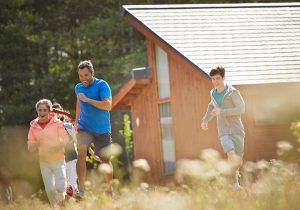
Win £500 worth of Forest Holiday vouchers!
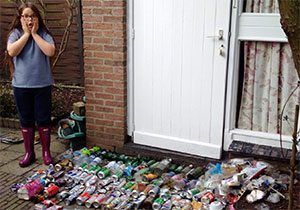
Lilly’s plastic clean-up mission!
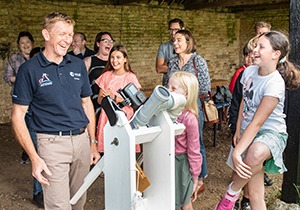
Experience a Summer of Discovery
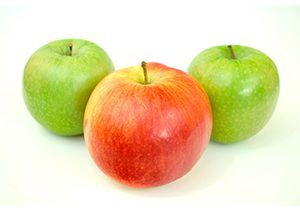








LEAVE A COMMENT
THANK YOU
Your comment will be checked and approved shortly.
WELL DONE,
YOUR COMMENT
HAS BEEN ADDED!
COMMENTS
This is the best website in the world
It's up to us!
awww i feel bad we gotta stop using plastic
I think people should not be lazy and it would not get like this like BRUHHHHH
nice
We gotta do something! I love animals
cool
plastic has been everywhere
stop people from dropping plastic in the water
Let’s use less plastic
Sad
WE HAVE TO TO ACTION AND SAVE MARINE LIFE!
We have to stop plastic pollution! Let's take action now!
Let’s do this
We’re already stop using one use plastic and reducing our plastic.Some times we also do beach clean ups but we were inspired by what you have said and we want to make a bigger change.
hi
We need to take action! Save em! >:)
SAVE THE OCEAN!
WE NEED TO STOP PLASTIC POLLUTION
Save the ocean
Let’s save the world
Please Don’t litter
Don’t litter
stop being mean to me i take ages to decompose it not my fault, but the people that made me
please dont litter
Take action NOW !!!!!!!!!!!!!!!!!!!!!!!!!!!!!!!!!!!!!!!!!!!!!!!!!!!!!!!!!!!!!!!!!!!!!!!!!!!!!!!!!!!!!!!!!!!!!!!!!!!!!!!!!!!!!!!!!!!!!
sad
We've got to stop this
hi
Omg we need to stop plasic going in the sea this is so sad!
I love it
This is amazing.
I love the idea it’s so sad what is happening
cool
cool
lets take action
It awakens our awareness to the ocean issue.
thank u
Help the earth and do a contest and see if someone get the most trash!
I used this article to help me with a essay for school and this was really helpful to take notes.-gr3
Help the earth
Save the ocean
save the ocean
keep clean help the earth
Hi
#TeamTrees
thank you for telling us all what has happend now I can find a way to help
cant wait to help!!!!!!
Wow!
Nice!
cool
I have known plastic is bad for animals. But today I could learn more. I want to reduce useing plastic and I don’t want to throw away from now on.
CUSTOMIZE YOUR AVATAR